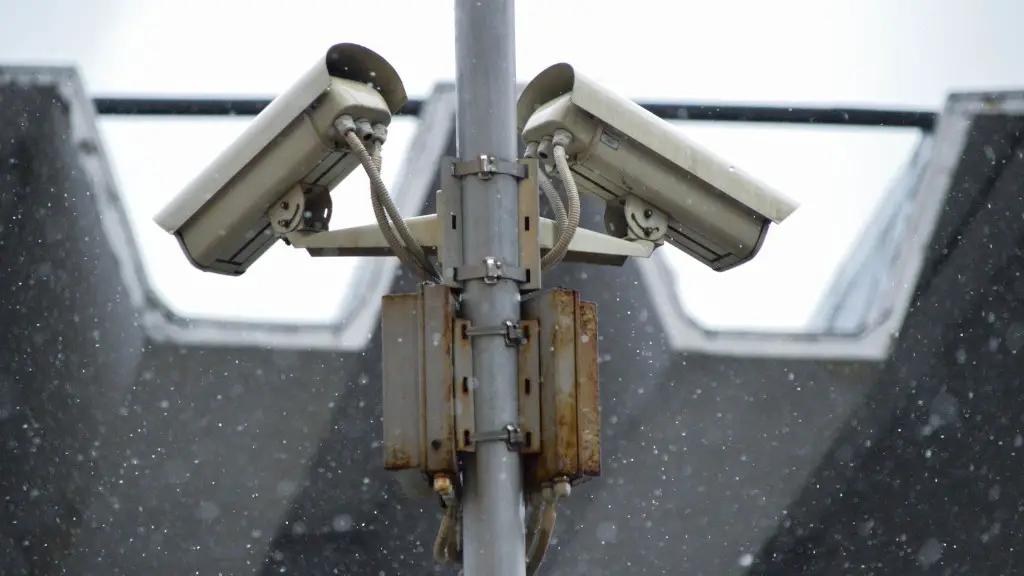Schooling and Degrees
To get recruited by the CIA, applicants must have an undergraduate degree or higher, preferably in disciplines such as international affairs, political science, math, and security studies. Additionally, the intelligence organization prefers applicants to have a minimum of a 3.0 grade point average in college courses, although certain backgrounds or job experiences might prompt a relaxed academic requirement. Grade point averages and average class standings may be a factor in the selection process. Applicants must also have strong computer skills, such as the ability to create spreadsheets, analyze data, solve problems, and create presentations. Skills such as public speaking and diplomatic acumen may also be held favorably by the agency.
A vital part of the recruitment process involves the consideration of background and experience. The CIA does not generally disclose exactly what is looked for in the ideal candidate, but the way candidates structure their resumes and the way they showcase their degrees and experiences on their resumes is also considered. Individuals who demonstrate an ability to conduct research, analyze data, design strategies, work in teams, and be a leader are frequently viewed favorably by the CIA.
Government Experience
Previous government experience is a major factor that is evaluated by the CIA in the recruitment process. It is particularly beneficial if candidates have prior government experience with the intelligence community or military intelligence, as this indicates a certain level of knowledge of both procedures and protocols of the security realm. In addition to prior experience, the CIA highly values knowledge regarding international cultures, foreign languages, and diplomatic negotiations.
The intelligence community is an especially rewarding career path. CIA agents are trained to engage in espionage activities, clandestine operations, and advanced analytical techniques. This type of work requires an individual to be highly intelligent, confident, and capable of working independently for lengthy periods of time. These are all qualities that the CIA looks for when recruiting candidates.
Application and Interviews
The CIA recruitment process involves completing a standard online application form and attending multiple interviews. It is critical that applicants make a clear and effective presentation of their skills and qualifications in the form and during the interviews. The CIA will ask many questions, and applicants must be able to answer them Knowledgeably, confidently, and accurately. A large part of this process involves the utilization of behavioral interview techniques to assess the candidate’s knowledge, integrity, and capability.
Additionally, the CIA performs a Background Investigation of potential candidates, including searching criminal databases and checking credit reports. Agents may also call previous employers, neighbors, and neighbors to inquire about the applicant. Candidates should also be aware that polygraph tests are administered as part of the application process.
Know Your Audience
When preparing for interviews, it is important to determine the interviewer’s own particular interests and areas of expertise. Knowing the interviewer’s background can help applicants tune in their responses and be succinct in their answers in order to stand out from the competition and present a coherent story. Applicants can also research the history, mission, and current activities of the CIA to get a better idea of the work they do and the challenges they face.
Qualifying Tests
Prior to undergoing an interview with the CIA, applicants must prepare for an IQ test, tests of verbal skills, reasoning- and skill-based tests, abstract problem-solving tests, and knowledge-based tests, depending on the role they are seeking. All of these tests are designed to assess an individual’s ability to think critically and make decisions in complex scenarios.
Conclusion of the Application
The recruitment process is a rigorous one and requires dedication, self-discipline, and resilience. But with hard work and focus, applicants will be in with a chance at being recruited to the CIA. If accepted, agents can look forward to career opportunities, excitement and adventure.
Self-Promotion
As well as the standard application procedures, applicants should also consider the value of self-promotion in the recruitment process. Social media platforms offer a chance to showcase an individual’s abilities, passions, and experiences. As the Internet plays a more central role in our lives, platforms such as LinkedIn, Twitter, and Instagram can be used as powerful tools. Highlighting the fact that one is highly educated and has a passion for intelligence work through posts and stories may be desirable to the CIA, showing knowledge and commitment to the field.
Intelligence Tests
The CIA evaluates candidates based on their performance in Intelligence Tests. This could include assessments by experienced intelligence officers of an applicant’s intelligence gathering skills, understanding of events and trends, and ability to think critically in order to identify potential solutions to emerging challenges.
Typically, the CIA utilizes two types of intelligence tests to evaluate potential agents: aptitude tests and psychological tests. Aptitude tests are comprehensive assessments of an individual’s strengths and development areas, examining problem-solving, analytical, and strategic thinking skills. Psychological tests focus on personality traits, such as self-discipline, resilience, and decision-making ability.
The Importance of Skills
CIA agents must be able to identify, collect, and disseminate intelligence in support of national security objectives. They must also be capable of finding solutions and developing strategies in developmental and political contexts. As such, agents require a variety of skills, including the ability to analyze information from multiple sources, engage in effective communication, synthesize data to formulate solutions, and write coherently and persuasively.
In addition to these hard and soft skills, applicants must also be able to demonstrate an aptitude for working with people. Interpersonal skills, such as cultural understanding, empathy, and diplomacy are essential for agents to succeed in the unique environment of intelligence-gathering operations. Agents must also have the strength and courage to make difficult decisions when the situation demands it, the adaptability to handle dynamic situations, and the perseverance to persist in the face of pressure.
Networking and Joining Organizations
Networking can be a powerful tool for individuals who are looking to get recruited by the CIA. Job seekers should look for contact and connection points with intelligence officers. This could include attending seminars, joining professional associations, and attending discussions and conferences devoted to intelligence-related topics. Additionally, joining international ‘intelligence’ organizations and taking part in volunteer opportunities may also create visibility and enhance the chances of getting recruited.
Learn About the CIA’s Mission and Values
It is important that prospective agents understand the function and purpose of the CIA as an agency, and its commitment to serve the nation’s highest interests. Utilizing knowledge of the CIA’s mission and values in interviews and communications may gain applicants the interest and attention of the agency. As the CIA is dedicated to the collection, analysis, and dissemination of intelligence, applicants who possess a strong knowledge of the intelligence community and its role in protecting America are more likely to be successful in their application.


